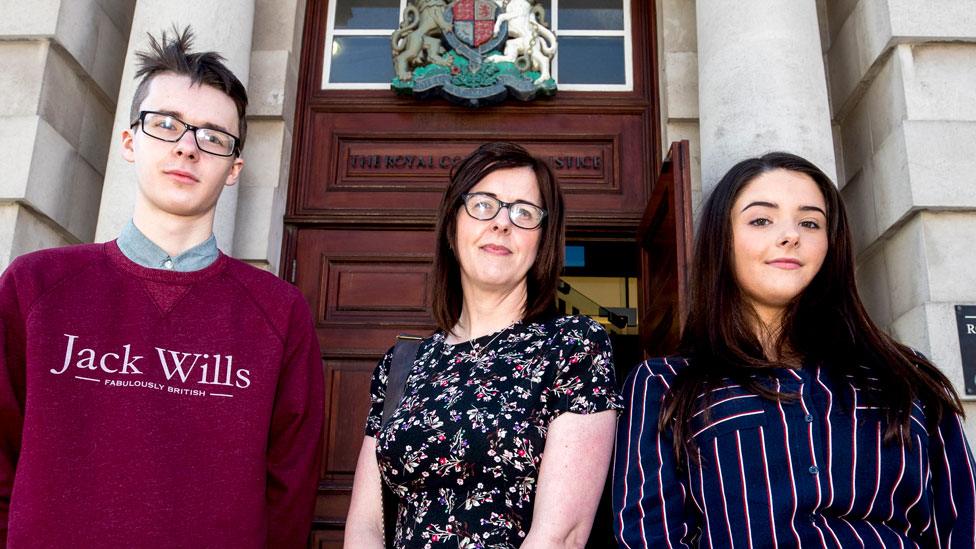Marina Lennon: Halted widow's payment was 'not discrimination'
- Published

Mr Justice McCloskey said the case was about "distributing finite public funds as equitably as possible"
A woman whose widow's benefit stopped when she began living with another man was not discriminated against, the High Court has ruled.
Marina Lennon, from Newry, County Down, was receiving the Widowed Parent's Allowance after her first husband died.
Mrs Lennon challenged the decision to halt the benefit, claiming it violated her right to private and family life.
But a judge dismissed the case, ruling the benefit is for single bereaved parents with dependent children.
He said the "assumption underpinning the legislation is that the financial need caused by the death no longer exists" if the surviving spouse re-marries or begins living with a new partner.
"The economic gap will be sufficiently filled by the formation of the new adult relationship," he added.
Benefit halted
Mrs Lennon was seeking to judicially review the Department for Communities decision to stop the payments, claiming it has put her teenage daughter at a financial disadvantage.
Her lawyers also argued that suspending the benefit would deter bereaved individuals from forming new relationships.
The challenge raised different legal points to the landmark case taken by unmarried County Antrim mother-of-four Siobhan McLaughlin.
She had been unable to claim the benefit after her partner of 23 years died, as they had never married.
In 2018, the Supreme Court ruled this was incompatible with human rights law.
Mrs Lennon, the mother of a 15-year-old girl, had been granted the benefit after her first husband passed away in October 2012.
The benefit stopped in 2014 when she started living with another man, who she went on to marry.
'Finite public funds'
Her legal team argued the department's decision could not be justified.
However, the judge described the policy as rational, fair and balanced.
He said it was about "distributing finite public funds as equitably as possible".
"And, more specifically, providing financial support to surviving spouses and civil partners during a period when their need would be expected to be greatest," he added.
The benefit should be discontinued in a circumstance where "the earlier need would generally be expected to be dissipated", he said.
Acknowledging Mrs Lennon has lost £10 a week since December 2014, the judge concluded: "The court does not underestimate the impact of this loss.
"However, for the reasons given I consider that her challenge must fail."
- Published30 August 2018
